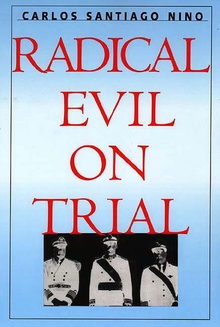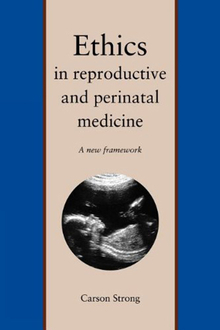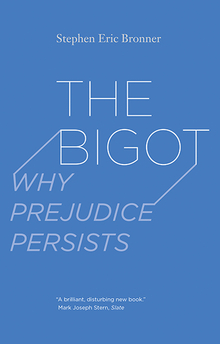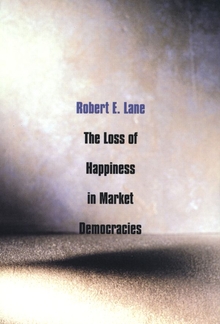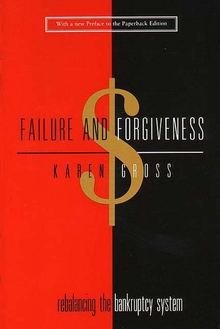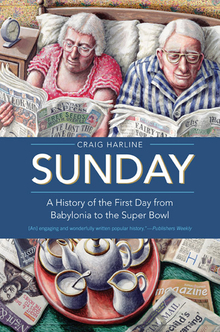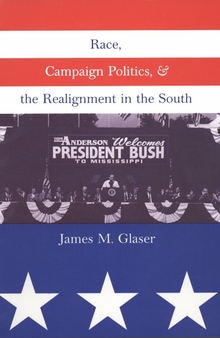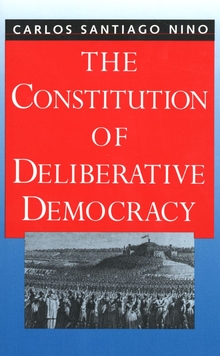Radical Evil on Trial
WARNING
You are viewing an older version of the Yalebooks website. Please visit out new website with more updated information and a better user experience: https://www.yalebooks.com
Carlos Santiago Nino
In this book, Carlos Santiago Nino offers a provocative first-hand analysis of developments in Argentina during the 1980s, when a brutal military dictatorship gave way to a democratic government. Nino played a key role in guiding the transition to democracy and in shaping the human rights policies of President Raúl Alfonsín after the fall of the military junta in 1983. The centerpiece of Alfonsín's human rights program was the trial held in a federal court in Buenos Aires in 1985, which resulted in the convictions of five of the leading members of the junta that ruled the country from 1976 to 1983.
Placing the Argentine experience in the context of the war crimes trials at Nuremberg, Tokyo, and elsewhere, Nino examines the broader questions raised by human rights trials. He considers their political repercussions and their potential for strengthening the new democratic government. He explains why prosecutions for human rights violations should be grounded on a theory of the criminal law that emphasizes the preventive rather than retributive functions of punishment. Nino rejects the obligation to punish perpetrators of radical evil and argues instead for a more forward-looking duty—to safeguard democracy. This, he believes, is what ultimately justified the Argentine trials and should be the focus of any international action.
"In Radical Evil on Trial, Nino has given us his distinctive approach to retroactive justice, a singular and compelling contribution to the literature and an excellent introduction to his liberal political philosophy."—Juan A. Millan
"Carlos Nino was a publicly engaged intellectual of rare integrity and brilliance. In his dedication to human rights, the rule of law, and constitutional legitimacy he combined passion with wisdom and analytic clarity. His inexhaustible courage in fighting to restore decency to his nation provides a model for others working in the wake of dictatorship. We are fortunate to have in his writings a record of his remarkable thought and experience."—Thomas Nagel
"Carlos Nino was an extraordinary combination of theoretical philosopher, practical statesman, and heroic patriot. His work engages and repays attention at all three levels."—Ronald Dworkin
"Carlos Nino was a brave man and an admirable philosopher who did his country notable service on the basis of a robust belief in liberal political values and universal human rights. His philosophy argues clearly and strongly for a foundation of the values which were expressed in his life."—Bernard Williams, University of California, Berkeley, and Oxford University
"Nino brings to this vitally important topic a unique perspective and a distinctive interdisciplinary approach. This is an exciting work, original, well-documented, and accessible."—Ruti Teitel
"A timely, interesting, and at times personal account of [Nino's] exploration of punishment or retroactive justice in cases of systematic, chronic human rights violations, particularly in his own country."—Choice
"The reader will find a remarkable effort to bridge the gap between the theory and practice of contemporary constitutional law and human rights policy. . . . Nino's arguments lie entirely in the intellectual debates of American academia. They are vigorously crafted with the subtle ingenuity of the learned scholar and experienced jurist. His discussions are most of the time enlightening and have the merit of rendering readily available and directly meaningful to lawyers many relevant aspects of the current debate in political theory and moral philosophy. Moreover his insider's account of human rights policy-making in Argentina is instructive and in many ways appealing. Students of constitutional law and human rights will find worthy reading in his books."—Marcus Faro de Castro, The Law and Politics Book Review <!--relates to both this book and the constitution of delibertive democracy-->
Publication Date: November 10, 1998

